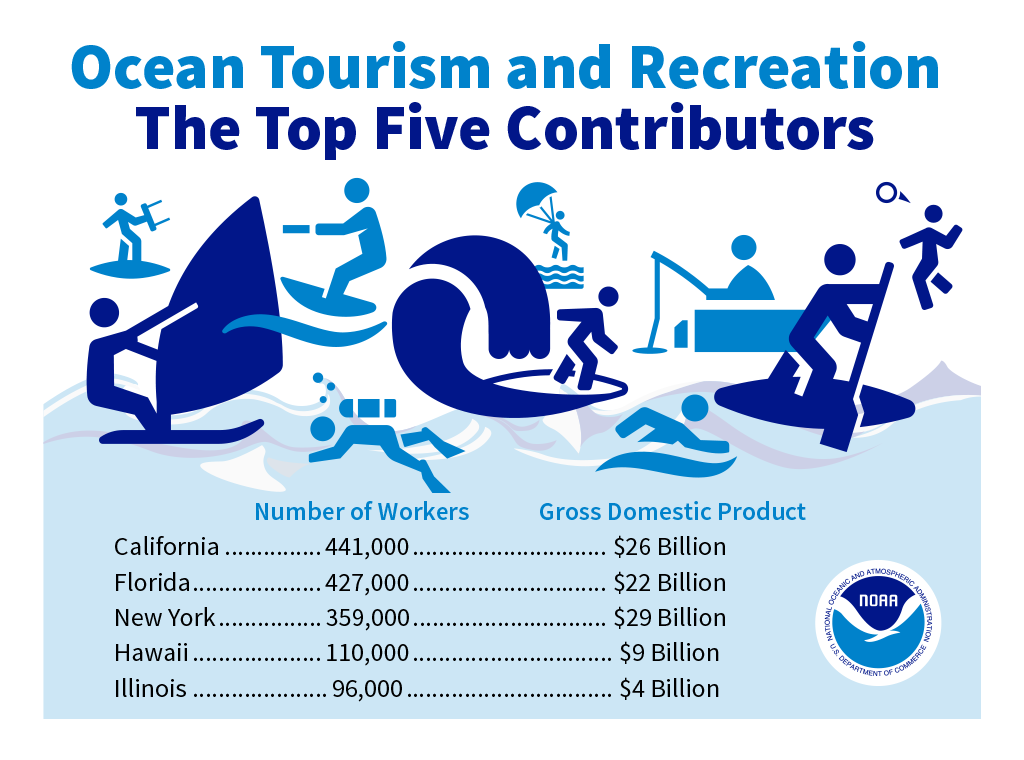Fast Facts / Tourism and Recreation
Tourism and Recreation
Tourism and recreation support a wide range of businesses in the nation’s shore-adjacent zip codes, from restaurants, hotels, aquariums, and marinas to boat manufacturers and sporting goods stores. The following facts are based on the latest available economic data1 (2018).
2.5 Million People
Almost 2.5 million people are employed by ocean-based tourism and recreation.
$66 Billion Earnings
Workers in the ocean-based tourism and recreation sector earned about $65.6 billion in annual wages.
$143 Billion GDP
Ocean-based tourism and recreation contributes approximately $143 billion in gross domestic product to the national economy each year.
An Industry Leader
The ocean-based tourism and recreation sector employs more Americans than the entire real estate industry, as well as more people than building construction and telecommunications combined.
Steady Growth
The industry added 54,000 jobs (2.3 percent growth) from 2017 to 2018—adding jobs at a slightly higher rate than the overall U.S. economy (1.6 percent growth).
Top States
In terms of employment, California, Florida, New York, Hawaii, and New Jersey are the five largest contributors to marine-based tourism and recreation, accounting for more than half of this sector’s total employment in 2018. In terms of gross domestic product, New York, California, Florida, Hawaii, and Washington State were the five largest contributors, accounting for more than half the national gross domestic product of this sector in 2018.
Leisure and Hospitality in Coastal Counties
In the larger economic sector of leisure and hospitality*, which includes all hotels and restaurants located in shoreline-adjacent counties, the economic contributions are also substantial. Statistics2 include the following:
Annually, leisure and hospitality in coastal counties
- Employs almost 6.9 million people
- Generates over $196 billion in earnings
- Contributes $427 billion to the gross domestic product
*Note: Economics: National Ocean Watch (ENOW) is a NOAA economics database on the Digital Coast that features time-series data focused on the six economic sectors that are dependent on the oceans and Great Lakes. ENOW's tourism and recreation statistics are good indicators of coastal and ocean tourism because they estimate the ocean-dependent portion of business for hotels and restaurants by including only those establishments located in shore-adjacent zip code areas, and they exclude all forms of sports and entertainment that are not ocean-related.
Statistics for the leisure and hospitality sector, on the other hand, include all hotels and restaurants located anywhere in a shore-adjacent county, many of which are far from the coast and have very little business connected to ocean tourism. These statistics also include activities associated with all forms of sports and entertainment, including sports arenas (e.g., professional baseball and football stadiums), Broadway plays, casinos, and racetracks.
